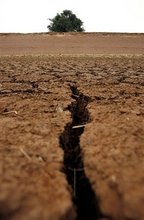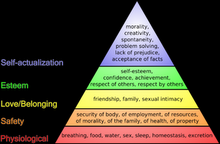First we went over some definitions related to food security such as:
- Chronic Hunger - the condition of constant malnourishment or recurrent undernourishment and results in stunted growth. Affecting about 798 million.
- Acute Hunger - severe undernourishment that causes wasting and starvation and is addressed with emergency food and aid. Affecting about 67 million.
- Hidden Hunger - micronutrient and vitamin deficiencies which are often seen in obese and overweight. Affecting about 2 billion.
We talked about how 40 thousand children die each day because of poverty and hunger and most of these deaths happen in India, Sub-Saharan Africa, and China. I thought it was interesting that China's numbers, while daunting, are rapidly improving and a large number of those are moving into a healthier status, which is indicative of political and economic improvements in China.
There's something I'd like to mention. Both developed and developing nations are experiencing problems related to food and health. The developed nations are dealing with over consumption issues like obesity and malnourishment. For the record, obesity doesn't equate to healthy individuals; in fact, many who are obese are not receiving a balance in their intake of recommended daily allowance of both micro and macro nutrients including: vitamins, minerals, fats, carbohydrates and protein for optimum health. The reasons for malnutrition include: over consuming some nutrients and neglecting others all together, or simply eating above the recommended daily allowance; this becomes unsafe. Eating at a level of upper intake limitations is dangerous and terminal and toxic; many people consume foods high in saturated and trans fatty foods, YES, eating too many of these can be toxic especially in terms of people developing diabetes, cancers and heart disease.
On the other hand, developing nations are dealing with issues of food insecurity where many are not even capable of accessing food on a routine basis and are undernourished.
My take, why don't we implement a weight watchers type of system in the public school system which centers around portion sizes and eating a balance of healthy foods that satiate appetite. Teach people from a young age about the importance of not overeating in our developed nation.
Great quote:
"There's enough on this planet for every one's need
but not for every one's GREED."
- Mahatma Gandhi
Graphic reference: Seeing images of poor undernourished children as well as the images of the sad and paralyzed obese.
Interesting Link to Radio Piece on Global Obesity: talking about the rate of obesity in France has doubled in recent years, to 12 percent — a figure approaching U.S. fat stats. http://www.npr.org/templates/story/story.php?storyId=6994649
Presentation Info: Jack and Emma discussed agriculture as a way to improve economic conditions. There was some debate over whether agriculture should be pushed in regions of corruption and war where this seems to be low on the agenda - but we felt that these are typically the regions who need the most help economically and would benefits most from these interventions.
















